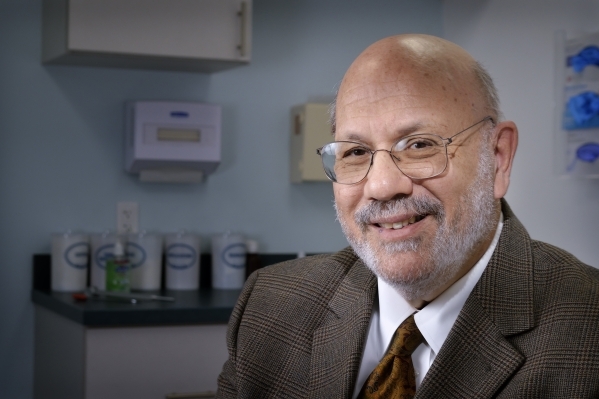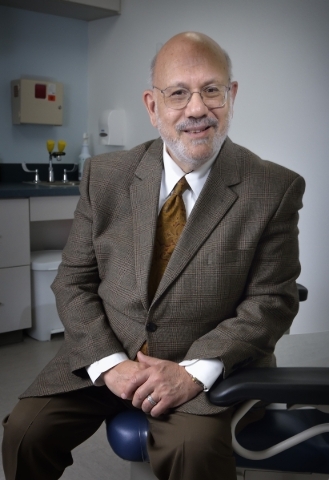Former dean of Touro’s medical school discusses local health care landscape
Vegas Voices is a weekly question-and-answer series featuring notable Las Vegans.
Dr. Mitchell Forman came to Southern Nevada in 2004 to take a position as founding dean of Touro University Nevada College of Osteopathic Medicine.
"I moved from Fort Worth, Texas, where we just had a wonderful life," Forman says. "I had a great job and I never thought I would leave there, except for this once-in-a-lifetime opportunity to be part of starting a medical school."
As it turned out, overseeing the new osteopathic medical school was only part of Forman's work in Southern Nevada over the past dozen years. He has been an active and vocal advocate for medical education, patient education and community outreach here and served Southern Nevada's medical community as an officer or board member of organizations that included the Clark County Medical Society.
Last week, Forman, 69, left his full-time position as dean of Touro University Nevada College of Osteopathic Medicine. We recently talked with the board-certified rheumatologist about the evolution of health care here that he has witnessed during his tenure at Touro.
Review-Journal: What's the biggest change you've noticed in Southern Nevada's medical landscape since your arrival?
Forman: I think the community's willingness to address some of the things we knew were wrong with the health care infrastructure in this community. When I arrived here, for example, we were one of the lowest in the nation — depending on the source, 46th or 47th — in the ratio of physicians to 100,000 population. We were very, very low on the list of medical residencies (versus) the population. We were low in terms of nursing. We didn't really have a robust medical education community. And I think one of the reasons why Touro chose this particular location was for those very reasons. There were great opportunities and a community that was looking to actively address those particular problems.
RJ: How has the local health care infrastructure changed?
Forman: It's not just about numbers only, obviously. It's also about quality. Clearly, we have some extraordinary quality organizations, and a good example of that would be the Cleveland Clinic (Lou) Ruvo Center for Brain Health. That, I think, is a world-class project here in our community. We have a great county hospital system, University Medical Center, that provides trauma and other medical care to our population and to our indigent population. We have a great many physicians here who are first-rate. But we've lacked the numbers, and that's the thing that's really critically important.
RJ: What was the most challenging aspect of starting a medical school here?
Forman: I think when you open up a brand-new medical school it's all about credibility. Are you credible or not (and) is your mission compatible with the needs of the community? I think that's the first thing. And that leads into reaching out in the community to help you grow and develop something that is brand new. There's no question people can make an assessment of existing projects and so on, but when it's brand new there was a concern that people wouldn't find us credible and wouldn't assist us, and nothing could have been further from reality. We found a community that was very willing to assist us in getting to where we needed to go.
RJ: How about patients? What do laymen here still have to understand about health care?
Forman: Now, with the Affordable Care Act, we have significant numbers of people who, at least to some degree, have some insurance, (but) who are finding it challenging to find physicians who have time and can fit them into their practice. I think that's been an issue for the patients' side. The other thing, I think, that is still an area of concern to me and many of my colleagues is that patients need to be better consumers of health care. In other words, they need to know more about their own health care. People know more about the oven they're going to purchase than the medications they're on and what surgeries they have had.
RJ: What are your plans?
Forman: We (Forman's wife, Pearl, is a physician assistant at Touro) are here now to stay. I haven't retired officially. I am semi-retired, which means I've given up the dean's position, but I have increased the time I spend seeing patients. So I'm three full days (each week) practicing rheumatology at Touro.
Read more from John Przybys at reviewjournal.com. Contact him at jprzybys@reviewjournal.com and follow @JJPrzybys on Twitter.





























